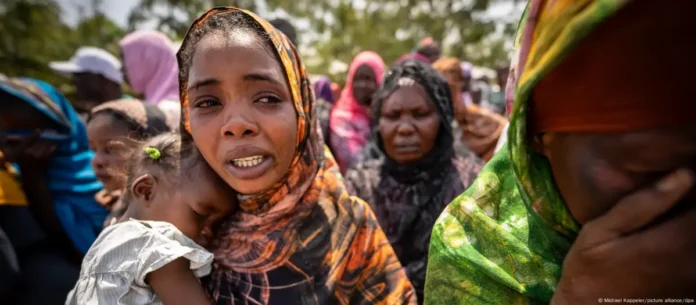The World Food Programme (WFP) has warned of impending famine in El-Fasher, the capital of North Darfur. For over a year, the city has been besieged by the Rapid Support Forces (RSF), leaving residents cut off from humanitarian aid and running out of supplies. Since the Sudanese army retook Khartoum in March 2025, RSF attacks on El-Fasher and surrounding refugee camps have intensified.
The United Nations has reported that children in Khartoum are “skin and bones” due to severe malnutrition. In El-Fasher, nearly 40% of children under five are now acutely malnourished, with 11% suffering from severe acute malnutrition.
Hundreds of thousands of civilians trapped in El-Fasher face constant shelling, drone attacks, and a dire shortage of food, forcing many to survive on animal feed or waste. Markets are nearly empty, and basic food items like sorghum and wheat, essential staples for bread and porridge, cost up to 460% more in El-Fasher than in other parts of Sudan. Most communal kitchens have closed due to lack of supplies.
The only major city in Darfur still under army control, El-Fasher has become the epicenter of Sudan’s worsening crisis, with aid groups warning daily of the risk of mass starvation. The ongoing war, which erupted in April 2023 between the army led by Abdel Fattah al-Burhan and the RSF of Mohamed Hamdan Dagalo, has killed tens of thousands, displaced millions, and triggered what the UN calls the world’s worst hunger crisis.
The rainy season has made road access even more difficult, deepening the isolation. Humanitarian agencies, including UNICEF and WFP, warn that unless safe and regular aid routes are opened, further loss of life is inevitable. Some families have no alternative but to consume animal fodder, and rising cases of cholera add to the suffering.
Last year, famine was officially declared at the Zamzam camp outside El-Fasher, and the UN estimates famine will spread further unless immediate and unhindered humanitarian access is granted.
The WFP has convoys ready to deliver essential food and nutritional aid, but it is awaiting guarantees of safe passage from the RSF, which continues to blockade the area. The United Nations has repeatedly called for a humanitarian ceasefire, but these calls have so far been ignored.


